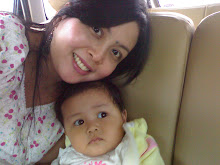| Learning to be apart from Mum or Dad is not easy for babies. And so most suffer, at various stages, from separation anxiety – becoming anxious and upset when you leave them, or reacting hesitantly with people they don’t see regularly. Around the age of six or seven months, many babies begin to show signs of separation anxiety, and this anxiety can come and go throughout the toddler years. Often separation anxiety peaks in babies around 12 to 18 months old and usually disappears by the time your child is two or two and a half years old. But, to some degree, how badly they suffer from separation anxiety is affected by their personality – so some kids will find being left harder than others. Why separation anxiety happens. At about six months old, your baby begins to realize that you and he are separate individuals. As your child moves into toddler hood and preschool age, he may fear that once you’re out of sight you may not come back, or he may worry about your safety.
All kids are different, and while one child may sail through this developmental stage, others don’t. To ease anxiety for your child: - Spend quality time with your child. Children manage better in new situations when they have experienced lots of warm, fun and caring experiences with their parents.
- When you are at home, minimize separations as much as you can and, where possible, take your baby with you if they seem anxious. Talk or sing to your child as you work. When you need to move from room to room, tell your child so they can follow, or pick them up.
- Tell family and friends your infant is shy around others and suggest they approach your child slowly. Also, give your infant time to get comfortable around others. Take a favorite or familiar thing such as a doll, blanket or toy.
- Respond to your infant if they are upset because they may become more anxious if you ignore their distress. If your baby starts to cry when being spoken to or held by another adult you will often be able to settle them with a cuddle.
- Remember to stay calm when your baby is upset. They need to see you calm and relaxed.
- Do let your infant interact with other people and go to different places. Experience will teach them that you are still nearby, even if not at home.
- When you must leave your baby, be consistent in the way you do it. Help make them feel comfortable then find a regular phrase to use when you are leaving: “Mummy/Daddy is leaving now. I will be back in a little while. Bye.” Kiss and hug your infant when you leave and tell them where you're going and when you'll be back. Make sure you don't prolong your goodbyes and resist the temptation to sneak out the door.
- Try to choose a caregiver your infant knows, or allow time for them to become familiar with a new person before you leave.
|

No comments:
Post a Comment